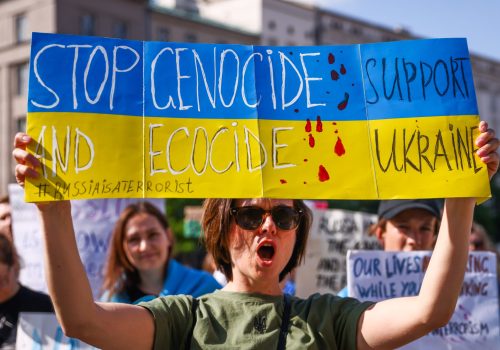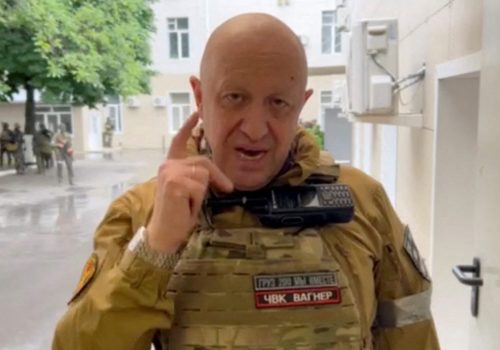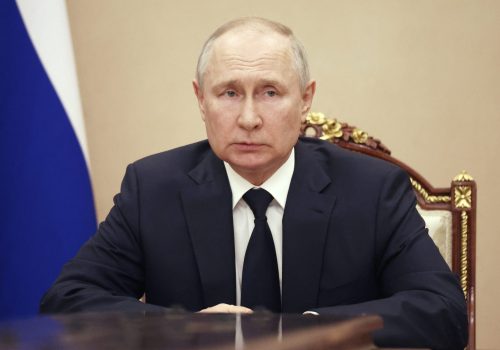When Moldova acceded to the EU Energy Community Treaty in 2010, it pledged to restructure away from Soviet centralization and reform its natural gas sector to comply with the EU’s anti-trust laws. More than 13 years later, the path ahead toward unbundling remains long and winding. The issue is urgent, however, because without gas sector reforms that break Russia’s stranglehold on Moldova’s energy sector and allow for real competition, Europe’s poorest country cannot hope to achieve energy security.
Moldova simply cannot afford to delay reforming its gas sector any longer. It is completely dependent on imports to keep itself heated and lit. Landlocked between Ukraine and Romania, 99% of oil is imported, along with 100% of natural gas. That gas fuels heating and the country’s lone power plant, located in Kremlin-controlled separatist region Transnistria.
This alone would be a recipe for energy disaster (and has been). Additionally, the country’s gas sector is almost entirely controlled by a monopoly called Moldovagaz, which is 51% owned by Russia’s gas monopoly Gazprom, with a 36% share owned by the Moldovan government and 13% by Transnistria. Moldovagaz’s wholly owned subsidiaries dominate all of the various subsectors of the energy industry. For example, Moldovatransgaz runs 98% of the distribution network.
This arrangement has afforded Moscow decades of informal control over Moldova. Indeed, allegations of Russia’s manipulation, coercion, and malign influence over the tiny country as exercised through Moldovagaz are too extensive to illuminate in full. A few highlights are the 2006 and 2009 gas shutoffs by Gazprom, which left tens of thousands of Moldovans without heating in the dead of winter. There have also been several rounds of brutal gas supply negotiations that have left Moldova with deeply disadvantageous gas contracts.
The most recent contract was signed in October 2021 and committed Moldova to another five years of Gazprom supplies. At the same time, President Maia Sandu’s new government, its lawyers, and its Western supporters are struggling with the fact that either pro-Russian actors in the former government or Moldovagaz officials appear to have wiped the files necessary to untangle several of the legal instruments that keep the country in its unhappy marriage with Gazprom.
Stay updated
As the world watches the Russian invasion of Ukraine unfold, UkraineAlert delivers the best Atlantic Council expert insight and analysis on Ukraine twice a week directly to your inbox.
Modovagaz also faces various accusations of accounting shenanigans. These include claims that it supplies Transnistria with gas that the breakaway region doesn’t pay for, and then charges the debt to the Moldovan government. Coupled with sometimes dubious debts Moldova has incurred buying gas, Gazprom claims the government now owes it $9 billion. This represents $760 million in purported Moldovan government debt, and $8.24 billion in debt tied to Transnistria. For comparison, Moldova’s GDP is under $14 billion.
Meanwhile, during October 2021 negotiations with Gazprom, Moldovagaz committed “not to carry out a forced reorganization” until this debt is settled. Critics believe this is a further indication that unbundling would be good for Moldova and bad for Russia. Signed in the midst of the mounting energy crisis of late 2021 and with Moldova running entirely out of gas, this agreement has been widely branded as an example of inappropriate Russian influence over the Moldovan energy sector.
Eurasia Center events

The obvious solution to break Russia’s energy dominance over Moldova is for the authorities to finally implement the unbundling of the gas sector and vertically de-integrate Moldovagaz. The EU Third Energy Package requires the three tiers of a natural gas market (upstream/production, midstream/transmission, and downstream/distribution) not be controlled by the same entity. In practice, this means separating the gas transmission system operator, Moldovatransgaz. The original deadline for unbundling was in 2016, with extensions then granted until January 2020, and then February 2021. In 2021, EU officials opened infringement proceedings against Moldova for its continued failure to unbundle Moldovagaz. In June 2023, the Ministry of Energy announced it was “determined” to complete Moldovagaz unbundling by September 2023. We shall see.
What form any unbundling will take also remains unclear. The Moldovan government may believe it lacks the capacity to manage Moldovatransgaz and the transmission system and may look for an external company to operate it. This would be a major mistake because giving critical infrastructure assets over to foreign entities would be repeating the same error as with Gazprom and Moldovagaz. It would also preclude Moldova’s learning to be self sufficient, a key aspect of energy independence and security. Another theoretical option is privatization, but that requires finding a buyer. Given Moldova’s history of defaults and disputes with private investors, there’s close to zero chance of that happening.
The best option is almost certainly finding a different government entity other than Moldovagaz to take control of Moldovatransgaz. This would replicate how Ukraine unbundled its gas monopoly, Naftogaz, by spinning off the transmission system operator into a separate entity controlled by a different ministry. There is some tangential precedent: Using a revolving EBRD credit of €300 million, the gas trading team at state agency Energocom, led by Maciej Wozniak, has pushed Gazprom out of the Moldovan market. Along the same lines, another state agency could step into the distribution business. This would have the added benefit of being more efficient because nothing new would need to be created; the unbundling would be a matter of paperwork.
There has probably never been a better time for Moldova to get serious about this; the cessation of gas transit from Gazprom into Europe means Russia has already played its energy trump card and has relatively little leverage left.
At the same time, Western interest and willingness to support Moldova during the transition should help cover any gaps. Politically, Moldova taking control of assets ultimately owned by Russia is good optics for Sandu’s government. And the political turmoil in Moscow coupled with the Kremlin’s distraction from its stalled war in Ukraine could make Moldovan maneuvers less likely to elicit an aggressive response. If everything goes right, becoming the supplier to Transnistria could even forge something of a path to national reconciliation. There’s never been a better moment to try, and there’s no time to waste.
Suriya Evans-Pritchard Jayanti is a nonresident senior fellow at the Atlantic Council’s Eurasia Center.
Further reading
The views expressed in UkraineAlert are solely those of the authors and do not necessarily reflect the views of the Atlantic Council, its staff, or its supporters.

The Eurasia Center’s mission is to enhance transatlantic cooperation in promoting stability, democratic values and prosperity in Eurasia, from Eastern Europe and Turkey in the West to the Caucasus, Russia and Central Asia in the East.
Follow us on social media
and support our work
Image: A member of the honor guard holds the Moldovan flag during a ceremony marking the State Flag Day in Chisinau, Moldova April 27, 2023. (REUTERS/Vladislav Culiomza)




